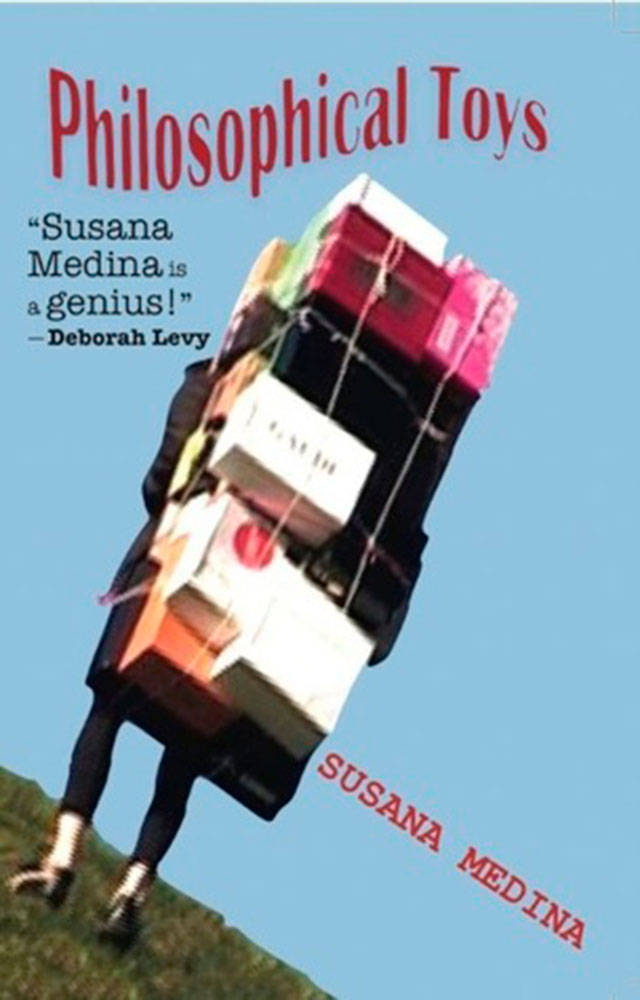By Heartwood, Everett Public Library staff
Susan Medina’s novel Philosophical Toys is told from the perspective of a young woman, Nina, about her alcoholic mother, who died when the narrator was six; her father, who develops full-blown Alzheimer’s in the course of the novel; and the time Nina spent in London where she was befriended by aspiring artist Mary Jane. The story pops back and forth between London and southern Spain. In one of her trips home to Almería, to see her father and to help clear out his house so he can move into an assisted living “commune,” Nina discovers 95 shoeboxes containing all kinds of women’s shoes. As she tries to unravel why all these shoes are there, she looks back on her mother’s life and remembers her spell of work as a “foot extra” and that she, or her feet, may actually have appeared in one of Luis Buñuel’s films. She also wonders if her father might be a shoe-fetishist.
Back in London, Mary Jane convinces Nina to be a partner in a gallery show in which Nina will exhibit her mother’s shoes. She reluctantly agrees and is surprised later on when a collector who had seen the exhibit wants to purchase a particular pair of boots. He is building what he calls The Museum of Relevant Moments which is comprised of props from Buñuel’s films, and the boots are the same make and style of the ones that appear in Diary of a Chambermaid (and may be the actual pair).
Toward the end of the book there’s a fine chapter that focuses on problems of authenticity, and it circles back to an early scene where Nina and Mary Jane are in a café commenting on a reproduction of the Mona Lisa hanging there. They observe that what makes a painting valuable is the space in which it is displayed – the one in the café could in no way be valuable due to its mundane surroundings, but the one in the Louvre is valued precisely because it is there. This is true even if it were to turn out that the café iteration is the original and what hangs in the Louvre is a mere copy.
Nina feels a sense of dislocation in language and geography, desire and longing, and her journey includes coming to terms with a mother she barely knew and a father whose memory and life is being ravaged by disease. Medina presents Nina’s world through language that feels completely comfortable and lived in, even as she delves into rather esoteric terrain such as Freudian fetishism, simulacra, and our relationship with objects.
There are many other topics touched on in these pages; in fact, Medina has constructed a narrative not unlike the roped-together shoeboxes that appear on the cover. If you like novels of ideas, with a brainy central character, and an unusually nimble literary style, you should enjoy going through the shoeboxes of Philosophical Toys.
Visit the Everett Public Library blog for more reviews and news of all things happening at the library.
Talk to us
> Give us your news tips.
> Send us a letter to the editor.
> More Herald contact information.

























